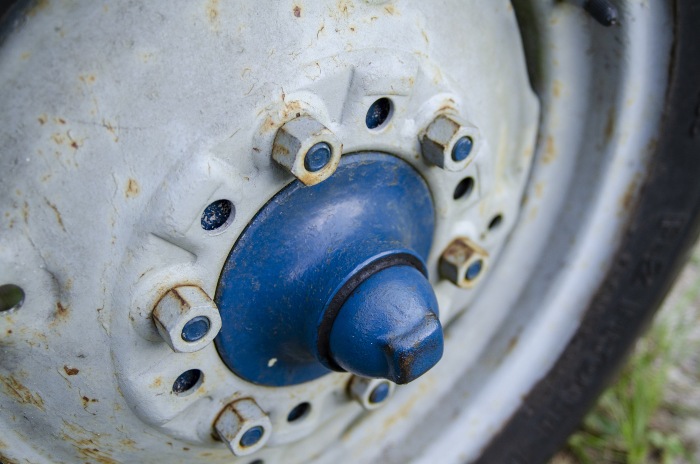Why Are My Brakes Squeaking?
Squeaky Brakes
You’re not alone if your brakes make that high-pitched squeal every time you stop. Squeaky brakes are a common issue that many drivers experience, and while it can be frustrating, understanding their root cause can help you address it effectively. In this article, we’ll discuss several reasons why your brakes might be squeaking, from thinning brake pads to overnight moisture, and we’ll provide you with tips on how to fix the problems.
Poor Quality Brakes
One of the most common causes of squeaky brakes is the use of poor-quality brake components. Cheap brake pads or rotors might not be designed to the highest standards, causing them to wear out quickly or not fit properly. This can result in squeaking as they rub against other parts of the braking system. Investing in high-quality brake parts may seem more expensive upfront, but it can save you money in the long run by reducing the need for frequent replacements and repairs.

Thinning Brake Pads
As brake pads wear down over time, they become thinner and less effective. When your brake pads are too thin, the metal backing plate can begin to contact the rotor, causing that awful squeaking sound. This is a clear sign that your brake pads need to be replaced as soon as possible. Ignoring thinning brake pads can lead to more severe damage to your braking system, including warped rotors or even brake failure.
Dust Between Your Rotors and Pads
Dust and debris can accumulate between your rotors and braked pads, especially if you’ve been driving in dusty or dirty conditions. This buildup can cause your brakes to squeak as the pads try to grip the rotors. Regular cleaning and maintenance of your brakes can help prevent this issue. If you suspect that dust is the cause of your squeaky brakes, consider having them cleaned by a professional.
Overnight Moisture
Overnight moisture is another potential culprit. If your car is parked outside, especially in damp or humid conditions, a thin layer of rust can form on your brake rotors. When you start driving, this rust can cause your brakes to squeak until it wears off. While this type of squeaking is usually harmless, it’s a good idea to take your car for a short drive to see if the noise disappears after the rust has been worn away.
Squeaking in New Brakes
Even brand-new brakes can squeak. It’s not uncommon to experience new brakes squeaking after installation, even if you’ve just replaced the brake pads. This squeaking brakes issue often occurs because the new pads haven’t yet settled in with the brake rotors, or there might be some residue or debris causing temporary noise. If you notice brakes squeaking after new pads are installed, it usually isn’t a major concern. A squeaky brakes fix can often be as simple as driving for a few more miles to the new brakes wear in. If the squeaking persists, have a professional clean the brake components or check for any adjustments.
Your Braking Style
Your driving habits can also affect whether your brakes squeak. If you tend to brake hard and frequently, your brakes are under more stress, which can cause them to squeak. On the other hand, riding the brakes or applying them lightly over long distances can also lead to glazing on the brake pads, resulting in squeaking. To minimize the chances of squeaky brakes, try to brake smoothly and consistently, avoiding sudden stops whenever possible.
Metallic Brake Pads
Some brake pads are made with metallic components, which can be noisier than other types. While metallic brake pads are durable and provide excellent stopping power, they can also be more prone to squeaking. This could be the reason if you’re using metallic brake pads and experiencing squeaking. In some cases, switching to ceramic or organic brake pads can reduce or eliminate the noise, though it’s important to weigh the pros and cons of each type of pad based on your driving needs.
Lack of Lubrication
The brake components, particularly the caliper pins, must be adequately lubricated to function smoothly. If these parts aren’t lubricated, they can cause friction and lead to squeaking. Over time, the lack of lubrication can also cause the parts to wear out faster, leading to more significant issues. Regular maintenance, including checking and applying the correct type of lubricant, can help prevent this problem.
How to Fix Squeaky Brakes
Fixing squeaky brakes starts with identifying the cause. Here are a few steps you can take to silence those squeaks:
- Inspect Your Brake Pads – Check for thin or worn pads and replace them if necessary.
- Clean the Brakes – Remove any dust, dirt, or debris from the rotors and pads.
- Lubricate Moving Parts – Apply brake lubricant to the caliper pins and other moving components to reduce friction.
- Consider Different Brake Pads – If you’re using metallic brake pads, you might want to switch to a quieter alternative, such as ceramic pads.
- Adjust Your Braking Habits – Practice smoother braking to reduce stress on your brake system.
Why Choose Us?
At Maryland Muffler, we understand how annoying squeaky brakes can be, but we also know how to fix them. Our team of certified technicians is equipped with the knowledge and tools to diagnose and resolve any braking issue. We use only high-quality parts to ensure your vehicle’s braking system functions safely and efficiently. Don’t let squeaky brakes compromise your driving experience. Contact us today to schedule an appointment and enjoy quiet, smooth stops every time.
